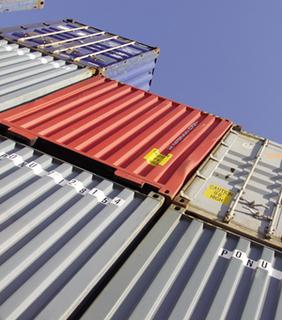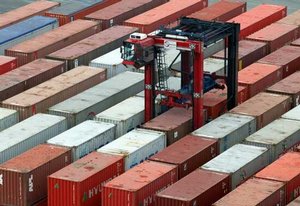Hungary's government has pushed through a law to undermine the independence of the central bank
Published:
30 November 2004 y., Tuesday
Hungary's government has pushed through a law to undermine the independence of the central bank. The clear intention is to force down central Europe's highest interest rates, even though the politicisation of monetary policy runs contrary to the principles of the euro zone – which Hungary is obliged to join. Yet it is unlikely to cause the country any more problems in its tortuous progress towards adopting the single currency.
The National Bank of Hungary (NBH, the central bank) said on November 24th it would challenge in the Constitutional Court a law passed by parliament to dilute the NBH's independence. Currently, the governor of the NBH and three deputy governors sit on the interest rate-setting Monetary Council; 3-5 other members are nominated by the governor and named by the state president with the approval of the prime minister.
Under the new law, approved on November 22nd, two deputy governors will lose their place on the Monetary Council, the governor will have the right to nominate four other members and the president will directly appoint the remainder (3-5). Because the government has backed away from dismissing any of the deputy governors immediately, all three will remain until their mandates expire in 2007. However, the government (formally the president) will have the right to appoint up to four members immediately. Assuming that this happens, the Monetary Council could have 13 members until 2007, when the number would fall to 11.
Šaltinis:
viewswire.com
Copying, publishing, announcing any information from the News.lt portal without written permission of News.lt editorial office is prohibited.
The most popular articles
 President of the Republic of Lithuania Dalia Grybauskaitė welcomed the decision taken by the U.S. Government to transport shipments for the international mission in Afghanistan by transit via the Klaipėda Seaport.
more »
President of the Republic of Lithuania Dalia Grybauskaitė welcomed the decision taken by the U.S. Government to transport shipments for the international mission in Afghanistan by transit via the Klaipėda Seaport.
more »
 EU Solidarity Fund aid to repair storm damage in France and Portugal was approved by the Budgets Committee on Thursday.
more »
EU Solidarity Fund aid to repair storm damage in France and Portugal was approved by the Budgets Committee on Thursday.
more »
 The European Investment Bank and the Government of Samoa formally agreed to support the rehabilitation and upgrade of independent water schemes in the Pacific island state under a EUR 250,000 technical assistance programme.
more »
The European Investment Bank and the Government of Samoa formally agreed to support the rehabilitation and upgrade of independent water schemes in the Pacific island state under a EUR 250,000 technical assistance programme.
more »
 Steps to overhaul the European Union's flagship single market were discussed on Tuesday (9 November) by MEPs and interested parties.
more »
Steps to overhaul the European Union's flagship single market were discussed on Tuesday (9 November) by MEPs and interested parties.
more »
 Strategy to secure a sustainable EU energy supply and support economic growth over the next decade.
more »
Strategy to secure a sustainable EU energy supply and support economic growth over the next decade.
more »
 EU funding to help 850 former workers in the aircraft maintenance industry around Dublin find new jobs was approved by the European Parliament on Thursday.
more »
EU funding to help 850 former workers in the aircraft maintenance industry around Dublin find new jobs was approved by the European Parliament on Thursday.
more »
Saffron farmers in western Afghanistan hope to oust opium as a harvest crop.
more »
 The European Commission has approved an application from Poland for assistance from the European Globalisation adjustment Fund (EGF).
more »
The European Commission has approved an application from Poland for assistance from the European Globalisation adjustment Fund (EGF).
more »
 New plans for EU industry to create jobs while keeping manufacturing in Europe.
more »
New plans for EU industry to create jobs while keeping manufacturing in Europe.
more »
 The European Commission has approved two applications from Spain for assistance from the EU Globalisation Adjustment Fund (EGF).
more »
The European Commission has approved two applications from Spain for assistance from the EU Globalisation Adjustment Fund (EGF).
more »